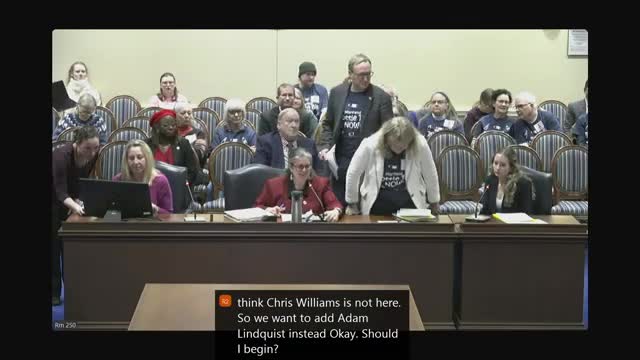Maryland bottle bill proposal would add 10–15¢ deposit to raise recycling, reduce litter and fund program by producers
Get AI-powered insights, summaries, and transcripts
Subscribe
Summary
House Bill 232 would create a statewide bottle‑deposit program with a 10¢ or 15¢ refundable deposit, run by a producer stewardship organization under MDE oversight, to boost recycling and cut litter across Maryland.
House Bill 232, the "Maryland Beverage Container Recycling Refund and Litter Reduction Program," would create a refundable deposit program requiring distributors to collect a deposit on covered beverage containers and a producer‑run stewardship organization to manage redemption, materials sale and program operations. Sponsor Delegate Jen Terrasa said the program would be self‑financing, pay retailers and restaurants handling fees, and dramatically increase beverage‑container recycling while cutting litter.
"Beverage container litter is a major contributor to the plastic pollution crisis," sponsor Jen Terrasa told the committee, urging a 10¢ deposit for containers 24 fluid ounces or less and 15¢ for containers between 24 ounces and 3 liters. She cited a statewide recycling rate of roughly 25% for beverage containers and said the deposit program would likely triple the recycling rate and remove billions of containers from landfills and waterways.
Supporters included municipal leaders, the National Aquarium, environmental groups and local volunteers who manage cleanups. Adam Lindquist of the Waterfront Partnership testified that his organization’s "Mr. Trash Wheel" has removed roughly 2 million bottles and beverage containers from Baltimore Harbor and that a deposit program would reduce cleanup costs and help redeploy resources toward parks and waterfront improvements.
Opposition came from some private recycling and waste‑management interests, certain retailers and the National Waste & Recycling Association, who argued the bill could reduce revenues for material recovery facilities (MRFs) and shift costs. MRF representatives warned that beverage containers currently account for a valuable portion of MRF output and that lost revenue could force higher tipping or collection fees for counties and municipalities if the program's compensation formula does not adequately offset impacts.
The bill includes convenience and handling standards, a five‑year review of program performance, and a transitional two‑year compensation provision to reimburse local governments for net losses during startup. Sponsor Terrasa said the program is designed to work with — not replace — curbside recycling and to complement other measures such as EPR (extended producer responsibility) for packaging and recycled content laws.
Ending: The hearing drew broad stakeholder participation — environmental groups, municipal officials, volunteers, recyclers, retailers and trade associations. Committee members asked about convenience standards, retailer space for reverse‑vending machines, handling fees and the timing to align this program with the recycling needs assessment and EPR work. The committee did not take a vote at the hearing.
